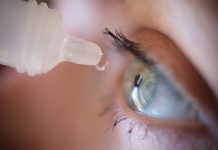
Recent findings presented at the American College of Cardiology’s Annual Scientific Session reveal a concerning correlation between short sleep durations and the increased risk of developing high blood pressure.
This extensive analysis, pooling data from 16 studies spanning across six countries and involving over one million participants, underscores the potential health risks of sleeping less than the recommended seven to eight hours per night.
The study, led by Kaveh Hosseini, MD, assistant professor of cardiology at the Tehran Heart Center in Iran, focused on individuals without a prior history of hypertension.
Over a median follow-up period of five years, researchers found that those who reported sleeping fewer than seven hours a night were 7% more likely to develop high blood pressure. This risk increased to 11% for those getting less than five hours of sleep.
These findings highlight the significance of sleep duration on cardiovascular health, especially when compared to well-known risk factors such as diabetes and smoking, which increase hypertension risk by at least 20%.
Interestingly, the research also noted that the association between sleep duration and the development of hypertension did not significantly differ with age, despite common perceptions that sleep patterns change as people age.
The participant group’s ages ranged from 35.4 to 60.9 years, with a slight majority being female.
The study revealed that women who slept less than seven hours faced a 7% higher risk of developing high blood pressure compared to men, suggesting a possible gender difference in how sleep affects blood pressure.
The reasons behind this correlation are not fully understood, but disrupted sleep could be a major factor.
Lifestyle habits, mental health issues like anxiety and depression, and physical health conditions such as sleep apnea, could all contribute to shorter sleep durations and subsequent health risks.
Sleep apnea, in particular, has been closely linked to a higher incidence of high blood pressure, stroke, and coronary artery disease.
Given these associations, it becomes crucial for individuals to discuss their sleep patterns with healthcare providers, particularly if they experience symptoms of sleep disturbances.
The study acknowledges several limitations, including reliance on self-reported data for sleep duration and inconsistencies in how short sleep was defined across different research papers.
The need for more precise methods, such as polysomnography, was emphasized to better understand the relationship between sleep quality and health outcomes.
Additionally, further research is necessary to standardize the definition of short sleep duration in scientific studies to ensure findings are consistent and applicable across various populations.
These findings not only contribute to our understanding of sleep’s impact on health but also suggest that improving sleep hygiene could be a simple yet effective way to reduce the risk of hypertension and related cardiovascular diseases.
As research continues to unravel the complexities of sleep and health, it’s clear that ensuring adequate sleep could be as crucial as diet and exercise in maintaining cardiovascular health.
If you care about high blood pressure, please read studies that early time-restricted eating could help improve blood pressure, and natural coconut sugar could help reduce blood pressure and artery stiffness.
For more information about blood pressure, please see recent studies about added sugar in your diet linked to higher blood pressure, and results showing vitamin D could improve blood pressure in people with diabetes.
Copyright © 2024 Knowridge Science Report. All rights reserved.



